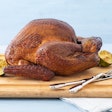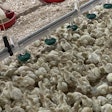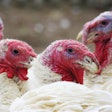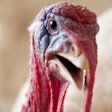
As U.S. turkey flocks have been repopulated and more products are now available at the retail and foodservice levels, turkey is poised to increase its market share among proteins.
Speaking during the Rabobank BBQ Index Virtual Media event on June 21, Rabobank Protein Analyst Christine McCracken discussed the U.S. turkey industry’s rebound after millions of turkeys were depopulated in 2022 because of highly pathogenic avian influenza (HPAI) infections.
McCracken said as the supply has come back online, a “drop off in turkey prices” has been seen the past several weeks, which is an opportunity for the turkey sector.
“I do think it’ll create some space for turkey to take share,” McCracken said, adding that that might be particularly true of sliced turkey at the deli counter and at restaurants.
“It’s possible that there might be some protein switching there. But the reality is that there is a lot of turkey and I do suspect that will give ham a run for its money,” she said.
She also stated that sliced turkey has appeal because it is a more affordable option than sliced roast beef.
“Turkey has legs. I do think that there’s room for turkey to make it back on some menus to get it back on the shelves and in some cases where they’ve had some difficulty over the past year,” McCracken said.
The last cases of HPAI in U.S. commercial turkey flocks were confirmed more than two months ago. No new detections in commercial poultry have been reported since April 19, when the presence of HPAI was confirmed in one turkey flock in Dickey County, North Dakota, and another in Beadle County, South Dakota. Before that, the last case of HPAI in a commercial turkey operation was confirmed on March 16, with that case being confirmed in Chester County, Pennsylvania.

















